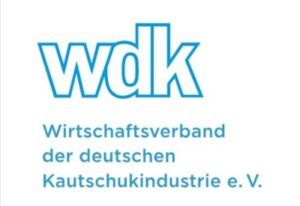German rubber industry calls for ‘dialogue on the future’
Berlin, Germany – Germany elected a new Bundestag on 26 September 2021 and is facing a tripartite alliance for the first time in its history.
While the Green Party and the Conservatives (CDU/CSU) were still far ahead in the polls in the spring, the Social Democratic Party (SPD) was able to catch up strongly and emerge as the election winner in the autumn.
Interestingly, however, the decision on the future government does not lie with the SPD (nor with the CDU/CSU), but with the two “small” parties, the Greens and the Liberal Party (FDP). They had first sat down together and agreed and only then started exploratory talks. The result: a rejection of a “Jamaica Coalition” (named after the parties’ colours: black, yellow, green) and a decision in favour of a “Traffic Light” alliance (red, yellow, green).
Immediately after the election, the German rubber industry stressed the need for a “dialogue on the future” with industry.” All parties that were given a mandate to form a government yesterday must live up to this responsibility,” said Boris Engelhardt, Chief Executive of the German Rubber Industry Association (wdk) in Frankfurt/Main. “In view of the major social and ecological challenges, we cannot afford a stalemate like in 2017.” What is needed, he said, is a stable government that is capable of taking action and facing up to the current challenges.
From the rubber industry’s point of view, the next four years are ground-breaking in the decision of companies as to whether there is still an economic future for them in Germany as an industrial location. Engelhardt therefore calls for a “dialogue on the future” between the new federal government and the business community, with the involvement of the small and medium-sized industrial sectors.
“The desired transformation to a sustainable and climate-friendly economy cannot be dictated from above, but must take place in a constructive exchange.” Only in this way, he said, can it be ensured that Germany remains internationally competitive as an industrial location and that production is not relocated to distant foreign countries, which would ultimately mean less climate protection than more climate protection.
With a view to the upcoming coalition negotiations, the wdk Managing Director referred to the demands made by the German rubber industry in its election manifestos: Affordable energy costs, moderate chemicals regulation with due regard for justifiable substitution, government support for the mobility turnaround and the circular economy for used tyres, and the introduction of a federal commissioner for raw materials.
Currently, the coalition negotiations between the SPD, the Greens and the FDP are still ongoing. Since the interests are very different, they can still fail. Although Olaf Scholz, the SPD election winner, belongs to the pro-business wing of his party, the parliamentary group in the Bundestag is dominated by the left wing.
The Greens, on the other hand, tried hard to show economic closeness in the election campaign, but their party base expects strict climate protection measures. In this constellation, the FDP has the role of an “economic policy corrective”. That the Liberals do not go along with everything was shown four years ago. At that time, they surprisingly broke off exploratory talks with the CDU/CSU and the Greens, arguing that it was better “not to govern than to govern badly”. As a result, the formation of a government dragged on for a long time because incumbent Angela Merkel had to convince the SPD to relaunch the grand coalition.
During the coalition negotiations, the wdk is lobbying for the rubber industry’s demands to be included in the coalition contribution. Apart from the “future dialogue”, this is the call for a federal commissioner for raw materials – not only for natural rubber, but for all raw materials important to industry. The current situation on the raw materials markets underlines how important such a central coordinator would be.

